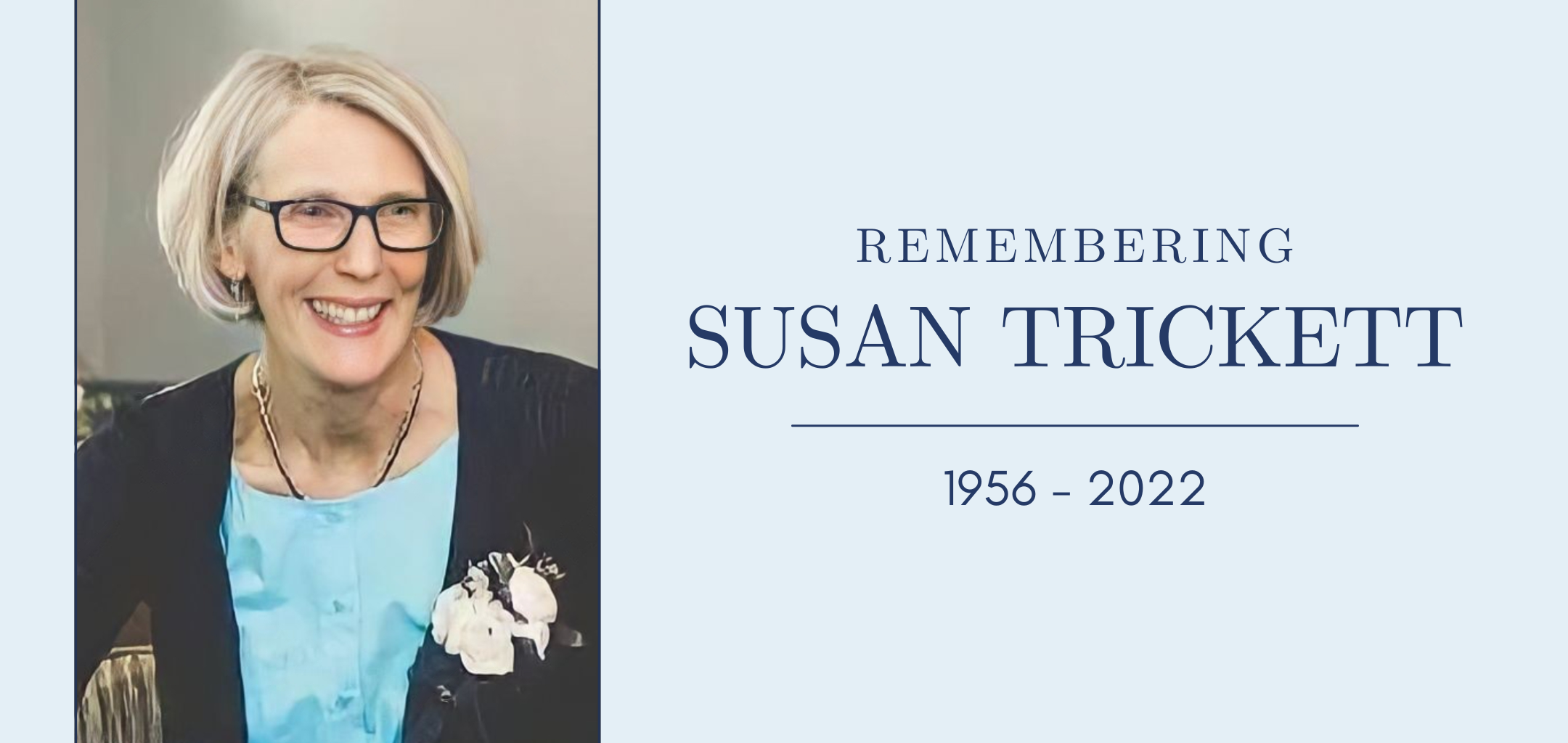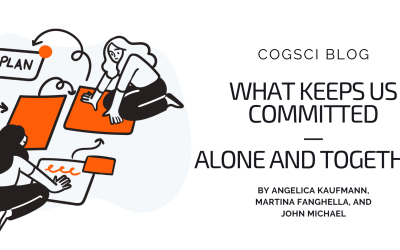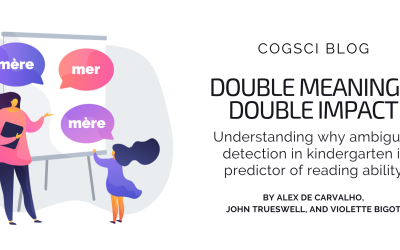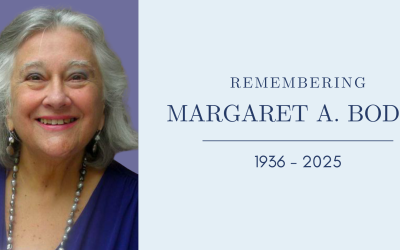Susan Trickett was a cognitive scientist whose contributions included research on spatial cognition and mental simulation, as well as applications of cognitive science in understanding scientific discovery and improving education. Susan served as the Executive Officer of the Cognitive Science Society for two consecutive terms in the years 2010-2016. She was a capable and calming presence on the Governing Board during challenging years of ongoing growth and organizational evolution. In recognition of her outstanding, sustained contributions to the advancement of cognitive science, and in particular, to the Cognitive Science Society, Susan was awarded an Honorary Lifetime Membership.
Earlier this year, Susan lost her battle with cancer. Her obituary is available here. The Society offers its condolences to Susan’s family, friends, and all those who knew and loved her. Below, several members of our community offer remembrances in celebration of Susan.
Wayne Gray
Rensselaer Polytechnic Institute
I first met Susan in the Fall of 1994 when I became a faculty member at George Mason University. Susan was a doctoral student in the Human Factors & Applied Cognition program, within the Psychology Department. Without hesitation and without hyperbole, I can say that she was the smartest doctoral student we had in the program at that time.
Forwarding through time and space, I became professionally involved with the Cognitive Science Society and during one of our reorganization episodes, we contacted Susan and asked her to serve as our Executive Officer. Susan accepted the offer and, with her as our organizing influence, the Cognitive Science Society grew from being a group of people who had a journal and met together once a year for a conference, to becoming a recognized and established “professional society.’’
Deborah Gruber
University of Texas
Susan Trickett was a steady and unbiased guiding voice for the Society for six years in the time of some great organizational changes. She always was ready to commit the energy and time that was needed to move decisions forward. I developed a true friendship with her and will always remember her sly wit. She would step in to “right the ship” in the tempest of conference coordination, as it were. Susan was an easy person to work with, as she was steady and committed to resolution. She was calm, cool and had that somewhat detached British sensibility.
I spoke with her earlier this year and she was longing to hike near the sea in England. This is how I will choose to remember her now.
Greg Trafton
Naval Research Laboratory
When Susan Trickett walked into my lab, I had no idea how lucky I was. She was a non-traditional student, coming back to school for a PhD after having raised her children to teens. At the time, I thought one of the advantages of working with a student who had some life experience was why we worked together so well: there was no lab drama, she got along with everyone in the lab and in the department, she knew when to ask for help, she listened to good advice and pushed back on bad, and she shared her own good advice with others (including me). I later realized that the reason we got along so well wasn’t because of her life experience, but it was because of who Susan was: a kind, generous, brilliant person.
Writing this tribute has been a struggle. Every draft has been a reminder that Susan would have effortlessly crafted a clear and elegant account. How can I use words to honor someone whose use of language was consistently extraordinary? Susan came to me without scientific writing experience, but she had analytical clarity and the ability to communicate the complexity of her observations.
One day she came to a lab meeting having just recorded two astronomers as they analyzed brand new data: she had watched 2 experts working on their new discovery and was excited about the processes they used. After that, her goal became to understand how experts and novices connected messy data to their own internal representations. Her verbal, writing, and analytical skills combined to allow her to see patterns in qualitative data that were sometimes subtle but existed across novices, intermediates, and experts.
But I remember Susan the most for her generosity. So many of her gifts were spent smoothing the way for other people. After she left the lab, I noticed that the writing quality of everyone’s papers decreased: she had been editing and making suggestions on students’ papers for years. She wanted others to love qualitative research as much as she did, so she wrote a practical primer for protocol analysis that is being used today by multiple labs. She brought Christmas cookies to everyone in the lab and gave a lab-mate her children’s books when they had a newborn. And then after she left academia, she wanted to integrate theory and application in real-world contexts, so she worked for a museum and a public school. And when she passed, she left her body to research in the hope that her contribution would help others with the rare form of cancer she had. She viewed both life and science as a communal effort, where her contributions made the world better for everyone.
Jessica Wong
Paramount
Susan Trickett was a treasured colleague at the Cognitive Science Society whom I had the pleasure of working alongside for three years. She kept the Society running smoothly and weighed in on various aspects of the annual CogSci conference that I was overseeing. She was always helpful, wise, and fun to be around. We met early on in my professional journey and she helped me navigate challenging situations such as political waters and supplier management, which were useful skills that I applied to my career in industry. Susan was deeply knowledgeable, highly collaborative, and most importantly, had a warm and kind heart. I learned so much from her and will miss her dearly. My thoughts and condolences are with the Trickett family.



